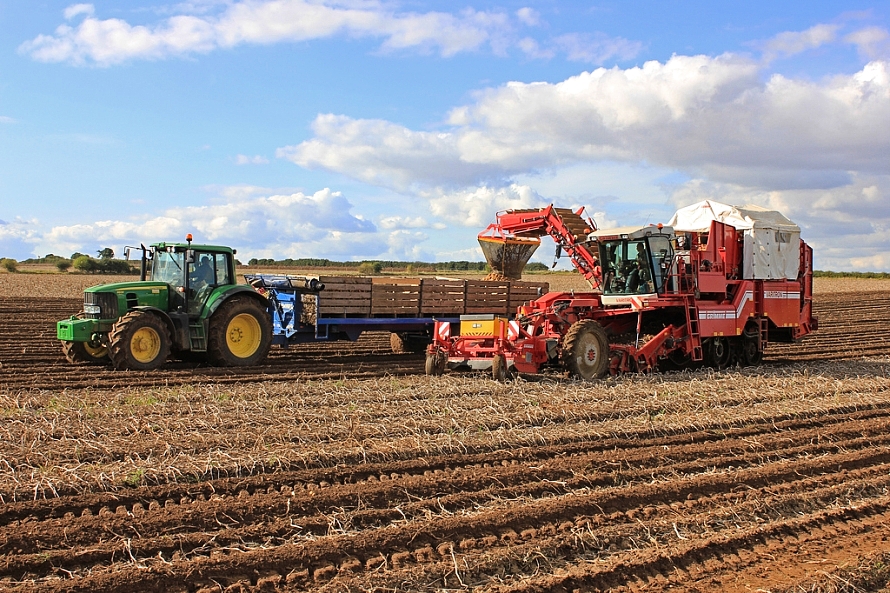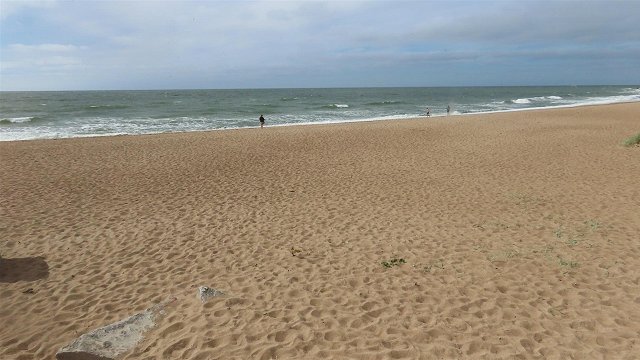“Winter crops really suffered this winter, which dashes hopes for a good harvest,” pointed out the LLKC’s cropping expert Oskars Balodis on the state agency’s website Friday.
Despite promising signs for the rapeseed crop this spring, it hasn’t developed well at all. “The root system suffered in the winter. That’s why they’re so scant, but the empty spots are full of weeds. To get rid of the weeds farmers will use herbicides and dessicants, which of course raises costs. Sprayed rape fields will be first to harvest by week’s end– but then losses will also be greater,” he explained.
The poor forecasts apply as well to the winter grains crop, which comprises most of Latvia’s total grains balance. “The rye has fallen down here and there, but the harvest might still be good. Winter wheat plants have tried to compensate for what was lost in winter, bet regardless the harvest will be lower than the annual average,” said the agronomer.
This week’s forecasts estimate that yields for winter wheat will be at around 3 tons per hectare (t/ha), winter barley – 2.3 t/ha, winter rape – 2.3 t/ha, rye – 3.3 t/ha and triticale –2.5 t/ha.
LLKC experts at least see a silver lining in prospects for a good summer grain crop. “This will be more of a psychological comfort, as farmers have already suffered sufficiently large losses. Hope too that the month left until reaping time will pass without further events,” said Balodis.
Almost 90% of south-central Zemgale province’s winter crops were destroyed by poor winter weather conditions and had to be replanted with summer crops.
The law mandates that the LLKC conduct productivity forecasts three times during the growing season for ten of Latvia’s primary crops, with three different schedules applied to winter crops, spring crops and potatoes. The current forecast is based on the second round of field inspections of winter crops for the month of July. The third estimate will be made after the harvest has been taken from the fields later in the season.
Fruit-growers in southeastern Latgale province have also faced frosts and problems caused by the extended cool, wet spring this year. As LTV reported Sunday from the Ķirši farm in Lendži, its 16-hectare orchards of apple, pear and cherry will be lucky to produce half of last year’s 150-ton fruit output.
“Eyeballing it I’d say one-third of last year’s harvest. The pears are really sparse this year. The apples froze out from the spring frosts before they even bloomed. This year there are lots of sicknesses and pests. We’re fighting, it’s been a pretty tough year, overall,” concludes Dmitris Pavlovs, master of the commercial farming homestead.
Current apple prices are around €1 per kilo, while sweet cherries go for €3.50 per kilo. Pavlov expects prices to rise due to the low harvest forecasts. The supply is also affected by imported fruit from Poland.
“We try to compete with quality, not quantity, and stay with our loyal buyers, even though apples from Poland and Holland might be a little sweeter, bigger, better-looking,” he said.





























